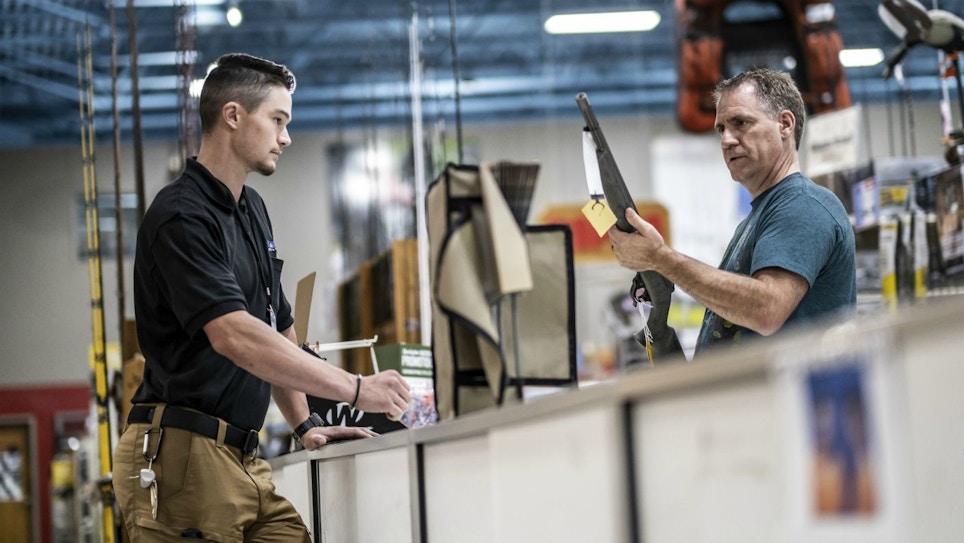Every industry needs salespeople who create relationships with customers, manage their experiences and close the sale. The basics of selling are the same no matter the product, but every industry is different. Obviously the products and services being sold differ enormously, but so do the demographics and behavior of the customer base.
So, for the shooting sports industry, what skill set makes a good salesperson?
Walk With Personality …
At most major corporations utilizing large salesforces, one of the facets critical to the sales position interview process is often some sort of personality test. Each test may have slightly different criteria, but all are seeking a few key qualities, such as the need to be outgoing, curious and optimistic, people who aren’t easily discouraged and will remain cool in uncomfortable situations. Salespeople should also be likable, but not obsessed with being liked, and they should be goal-oriented.
Everyone at some point in their life has met someone and thought, “That person is a natural at sales.” It’s true, some do have a knack for sales. It’s also true that some of those otherwise natural skills can be taught, but it’s difficult and not often successful. At its core, sales is both a talent and a skill, but talent cannot be taught or developed quickly.
But Talk With Knowledge
Beyond having a personality that closes sales, your salespeople must know the details of what they are selling and be able to speak about it intelligently. I once told a gentleman I was looking for a milling machine, and he tried to sell me a lathe, referring to it as “that machine over in the corner that takes the material off.” Needless to say, I did not buy the lathe. I did buy a milling machine (which he couldn’t identify) from him for about a third of what it was worth — good day for me, bad day for him.
With so many different types of products and services out in our industry, you’re really searching for the right combination of inherent sales talent and product knowledge. But if forced to choose one or the other, what should it be?
The Gun Guys
No shoe buyer calls adidas to inquire about the vulcanization process used in the rubber and at what temperature it cures its soles. But those types of deep-detail inquiries are common among firearms buyers. This often leads companies at all levels, but especially retail, to hire product experts as salespeople.
The thought process is that one must be a “gun guy” to talk intelligently or sell to another gun guy (or gal) and that customers will reject canned sales palaver from someone they perceive as inauthentic. There is of course merit to this thought process, but we must remember balance. Those who possess the most technical knowledge on any subject are often not the best people for selling those products. Let me give you an example.
Early in my career in the firearms industry I was confronted with a salesman who had decades in law enforcement and the firearms trade. He had a wealth of knowledge and taught me many things, but he was ineffective in sales. Even though he was well-liked, many potential customers stayed just that — potential. He often led with the negative, overshared information that clouded the issue at hand, and prized the conversation over the sale. Indeed, he would shy away from difficult sales situations. Many attempts were made to train him on sales techniques, but it never clicked for him.
Any intelligent person can be taught product knowledge, but not every intelligent person can be taught to effectively sell. If you can find someone who has both skill sets, then good for you. But that doesn’t happen often.
If forced to choose, your time and resources are much better spent hiring a sales professional and teaching them about firearms than the other way around. In doing so, make the first element of their training admitting what they don’t know and have them refer tough questions to you or another expert when they’re working with a customer. That’s both honest and authentic. The customer will respect it and you will maintain the sales opportunity instead of losing it due to a salesperson who was unable to generate attention and interest.






